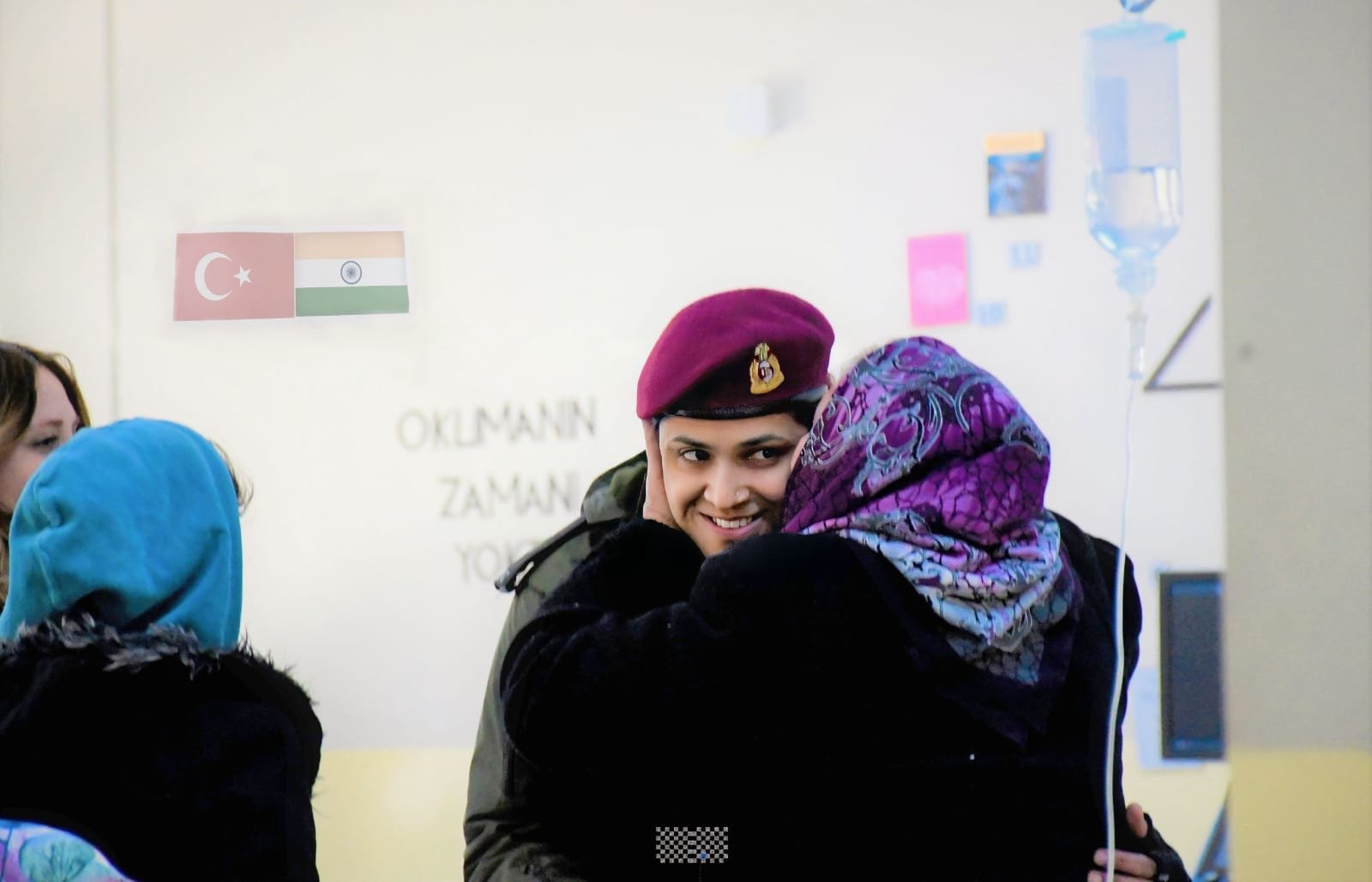© Turkuvaz Haberleşme ve Yayıncılık 2024
The Indian Embassy in Türkiye held a panel to mark International Women’s Day that highlighted the challenges faced and the resilience of women in times of natural disasters.
Türkiye's head of the United Nations World Food Programme (WFP) Parvathy Ramaswami; professor Feride Acar, the founding chair of the Middle East Technical University's gender and women's studies program; and India’s Istanbul Consulate General Sudhi Choudhary participated in the panel, held in the capital Ankara under the theme "Facing Adversity” and moderated by Daily Sabah’s Dilara Aslan Özer.
“This year we may use this day as a moment of reflection, as an occasion to reflect on the large-scale challenges such as natural calamities and how women, with the attributes of strength and courage, grace and resilience, play a definitive role in dealing with and overcoming those challenges,” Indian Ambassador to Ankara Virander Paul said in his opening speech.
"There are countless women around the world, especially in the developing world, who may not be aware of the existence of such a day, but they are day in and day out playing their role tirelessly in the face of a wide variety of adversities and challenges in the interest of their families and societies," he added.
Paul also highlighted that women were part of rescue and relief teams that India had sent after the deadly earthquakes in southeastern Türkiye last month.
"Indian teams had women as active and enthusiastic members, and we are proud of the role they played in providing relief to the suffering people. Some of you would recollect the images of an Indian army doctor on social media who was widely appreciated not only for her professional competence but also for the empathy she and others exhibited as they approached those who needed urgent and timely medical attention. Women brought a special healing touch," he said.

The panel was organized in the aftermath of the 7.7 and 7.8 magnitude twin earthquakes that struck Türkiye and Syria on Feb. 6, killing more than 50,000 people and causing widespread destruction.
Acar, for her part, spoke about the challenges women experience during natural disasters and conflict zones.
"March 8 is also a day to remember how the world is still very far away from real equality, the goals of gender equality still have a long way to go. Disasters actually indicate to us, some of that missing part to the voyage of equality more dramatically than normal times," she said.
“Women are affected differently by disasters. Women experience greater risks, burdens and impacts in these situations,” Acar underlined.
Dealing with authorities who are mostly men and who are not aware of the needs of women, is in itself a dramatic experience, she indicated.
In her speech, Ramaswami said that she visited camps in Türkiye's quake-hit Kahramanmaraş and Hatay provinces.
"I also spoke to female municipality staff who volunteered in kitchens to cook. Everybody told me that they stayed at locations where they were providing assistance. So, this collective sense of giving exists in women more than men because women talk about others and they care for others. I received more requests from women asking, ‘Can you look after somebody? Can you support somebody else?' and when I talk to men it was all about ‘We need this, and can you provide this,'" she noted.
Choudhary, for her part, told her experiences and encounters working in the earthquake zone while being in charge of the Indian relief efforts control room. Emphasizing the scope of devastation that she witnessed in the southern provinces of Türkiye, yet, Choudhary, highlighted the strength and resilience of women in the disaster zone.
“My home India is also very vulnerable to earthquakes; we had some awful ones that resulted in the loss of lives and devastation. But what I saw in southern Türkiye was unbelievable. I had never seen in my entire life,” Choudhary said. She continued to elaborate that she left Istanbul for Adana and set up the control room that was operating day and night to coordinate the relief efforts of Operation Dost.
